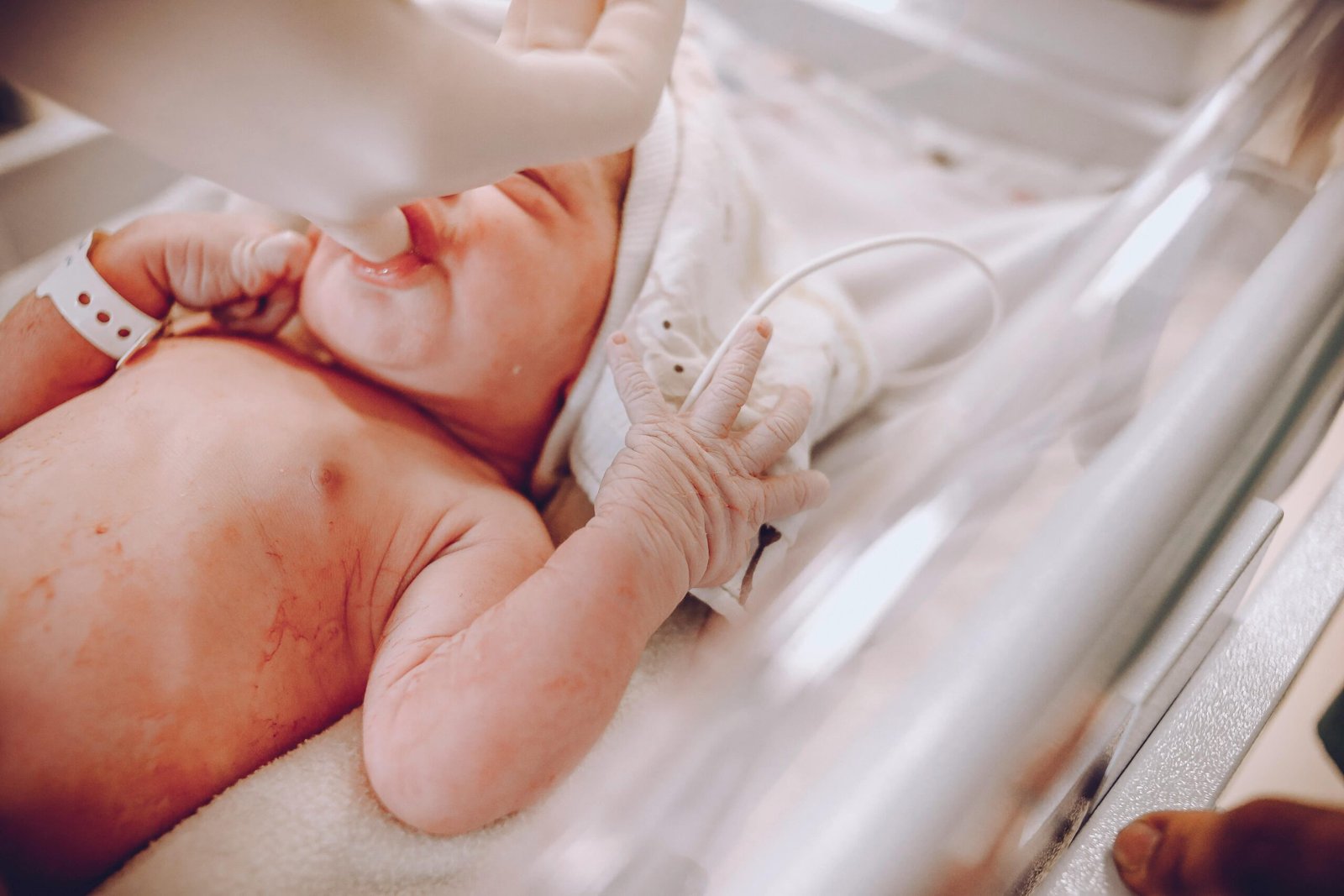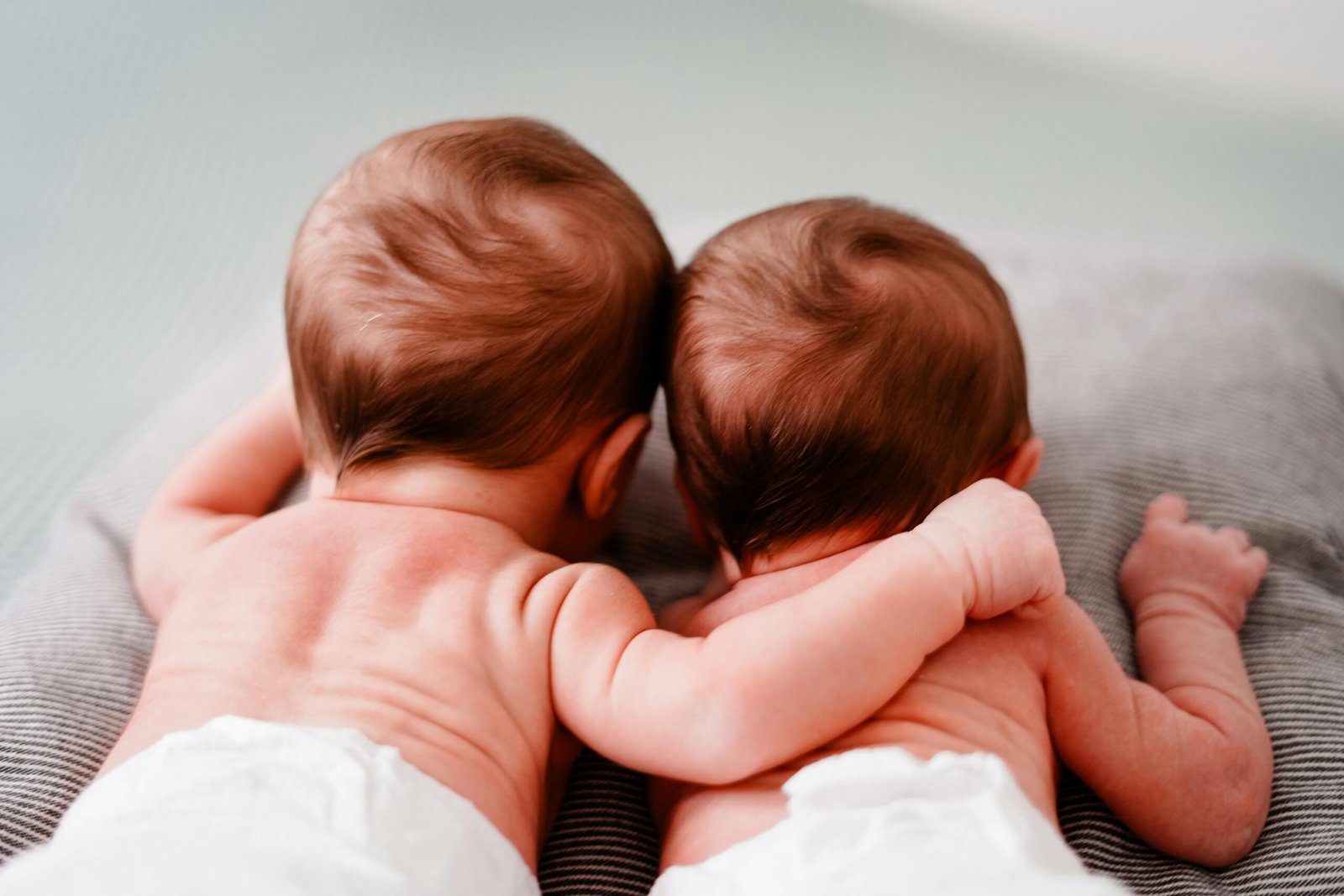As a parent, nothing is more nerve-wracking than seeing your baby sick. A little sniffle? Probably nothing. A mild cough? Could be just a common cold. But what about when it turns into something more serious? Pneumonia is one of those infections that can sneak up on little ones, and knowing the signs of pneumonia in babies can make all the difference.
What Exactly is Pneumonia?

Pneumonia is an infection in the lungs that can be caused by bacteria, viruses, or even fungi. It leads to inflammation and fluid buildup, making it harder for a baby to breathe. The tricky part? Pneumonia can sometimes start off looking like just another cold. But the signs of pneumonia in babies can become more serious as the infection takes hold.
Early Signs of Pneumonia in Babies
It’s easy to mistake the early signs of pneumonia in babies for a regular respiratory infection. Your baby might start off with a mild cough or a slight fever. But if they seem fussier than usual or have trouble sleeping, it’s worth paying extra attention.
Coughing that won’t go away is one of the first red flags. While a common cold usually clears up on its own, pneumonia can cause a cough that lingers and worsens. The sound of the cough matters too—if it’s deep and wet, it might be time to see the doctor.
Fever is another clue. Babies can get fevers for all kinds of reasons, but a high fever (above 100.4°F) that sticks around could point to pneumonia. If your baby is burning up and seems unusually sleepy or irritable, don’t ignore it.
Breathing Trouble: A Big Warning Sign
One of the most concerning signs of pneumonia in babies is difficulty breathing. If your baby is breathing faster than normal, struggling to catch their breath, or their nostrils are flaring with each breath, those are big red flags.
Watch for retractions—when the skin between the ribs or around the neck pulls in with each breath. This can be a sign that your baby is working too hard to breathe. Wheezing or grunting sounds when exhaling can also signal that something is wrong.
In severe cases, you might notice a bluish tint around your baby’s lips or fingertips. This means they’re not getting enough oxygen and need medical attention right away.
Other Symptoms That Might Show Up
Sometimes, signs of pneumonia in babies go beyond just coughing and breathing issues. Your little one might seem extra tired, refusing to feed or showing little interest in playtime. Vomiting or diarrhea can sometimes accompany pneumonia, especially in viral cases.
Babies can’t tell us how they feel, but if your baby seems unusually clingy, upset, or just “off,” trust your instincts. Parents know their babies best, and if something feels wrong, it’s worth getting checked out.
When to See a Doctor
If you notice any of the signs of pneumonia in babies, especially trouble breathing, high fever, or extreme fatigue, it’s time to call the pediatrician. A doctor can listen to your baby’s lungs, check oxygen levels, and possibly order a chest X-ray to confirm the diagnosis.
Bacterial pneumonia often requires antibiotics, while viral pneumonia usually just needs supportive care. Either way, early treatment can help prevent complications and get your baby feeling better faster.
Preventing Pneumonia in Babies

The best way to deal with pneumonia? Avoid it in the first place! Vaccinations like the pneumococcal vaccine and flu shot can help prevent some of the most common causes. Good hygiene—like regular handwashing and keeping sick visitors away—also helps keep germs at bay.
For babies under six months, breastfeeding can provide extra immune protection. And making sure your little one gets plenty of rest, fluids, and a healthy diet can keep their immune system strong.
Trust Your Parental Instincts
Babies get sick—it’s part of growing up. But knowing the signs of pneumonia in babies can help you catch it early and get the right treatment. If your baby has a persistent cough, trouble breathing, or just doesn’t seem like themselves, don’t hesitate to reach out to a doctor.
Your gut feeling as a parent is powerful. If something feels off, trust yourself. A quick checkup could make all the difference in keeping your little one healthy and happy.
Frequently Asked Questions: Signs of Pneumonia in Babies
1. What are the early signs of pneumonia in babies?
At first, pneumonia can look a lot like a regular cold. Your baby might have a little cough, maybe a runny nose, and just seem a bit off. But unlike a cold that slowly gets better, pneumonia takes a different turn. Instead of perking up, your baby might start breathing faster, struggling a little to catch their breath, or making grunting noises. You might notice their tiny ribs pulling in with each breath—like they’re working extra hard. They could also have a fever that just won’t quit, or they might be super sleepy and uninterested in eating. If something feels “off,” it’s always worth checking in with a doctor.
2. How do I know if my baby’s breathing is normal or a sign of pneumonia?
Newborns naturally breathe faster than adults, but pneumonia speeds things up in a way that feels alarming. If your baby seems to be taking more than 50-60 breaths per minute (depending on their age), it could be a red flag. You might also notice their nostrils flaring out like they’re trying to suck in more air, or a little tugging in at the base of their throat with each breath. Some babies make a soft wheezing or grunting sound—it’s their body’s way of trying to keep their lungs open. The real sign that something is wrong? If your baby’s chest looks like it’s working too hard, or their lips or fingertips start looking bluish. That’s an emergency, and they need help right away.
3. Can a baby have pneumonia without a fever?
Yep, and that’s what makes it tricky! While many babies with pneumonia get a fever, some don’t. Newborns, especially, can have pneumonia and just seem extra sleepy, fussy, or uninterested in eating. They might have cooler hands and feet or seem weaker than usual. If your little one seems strangely out of sorts—like they’re too tired to cry properly or they’re just not their usual self—it’s a good idea to get them checked out.
4. Does pneumonia always come with a cough?
Not always! While a wet, rattly cough can be a classic sign of pneumonia, some babies don’t cough much at all. Instead, they might just breathe in a way that seems off—faster, shallower, or with a little grunt at the end. If they do cough, it might sound deeper and more persistent than the average cold. Some babies also have trouble keeping their milk down, not because of stomach issues but because their breathing and coughing make feeding exhausting.
5. What’s the difference between pneumonia and bronchiolitis?
Great question, because these two can look really similar! Bronchiolitis is usually caused by a virus (often RSV) and mainly affects the tiny airways leading to the lungs. It tends to cause lots of wheezing and a wet-sounding cough. Pneumonia, on the other hand, is an infection in the lung tissue itself. Babies with pneumonia often look sicker—fever, fast breathing, and more effort to breathe. While both can make a baby miserable, pneumonia is usually the one that needs antibiotics if it’s bacterial, and sometimes even hospital care.
6. When should I take my baby to the doctor for possible pneumonia?
If your baby just has mild congestion and a little cough, you can usually keep an eye on them at home. But if they start breathing too fast, struggling to breathe, or looking pale or blue around the lips, it’s time to see a doctor. Also, if they refuse to eat, seem really drowsy, or have a fever that won’t go away, don’t wait it out—babies can get worse quickly. Trust your gut. If something doesn’t feel right, it’s better to check than to wonder later.
7. How can I help my baby recover from pneumonia at home?
If your doctor gives the all-clear for home care, the main thing is keeping your baby comfortable and hydrated. That means offering frequent feedings, even if they only take small amounts at a time. Running a cool-mist humidifier can help loosen up mucus, and keeping their head slightly elevated (safely, of course) might make breathing easier. If they have a fever, your doctor might recommend baby acetaminophen or ibuprofen (depending on their age). Most importantly, give them lots of cuddles and rest! Pneumonia takes a lot out of those tiny bodies, so expect a slow return to normal.
